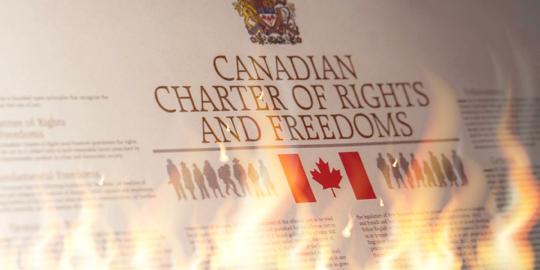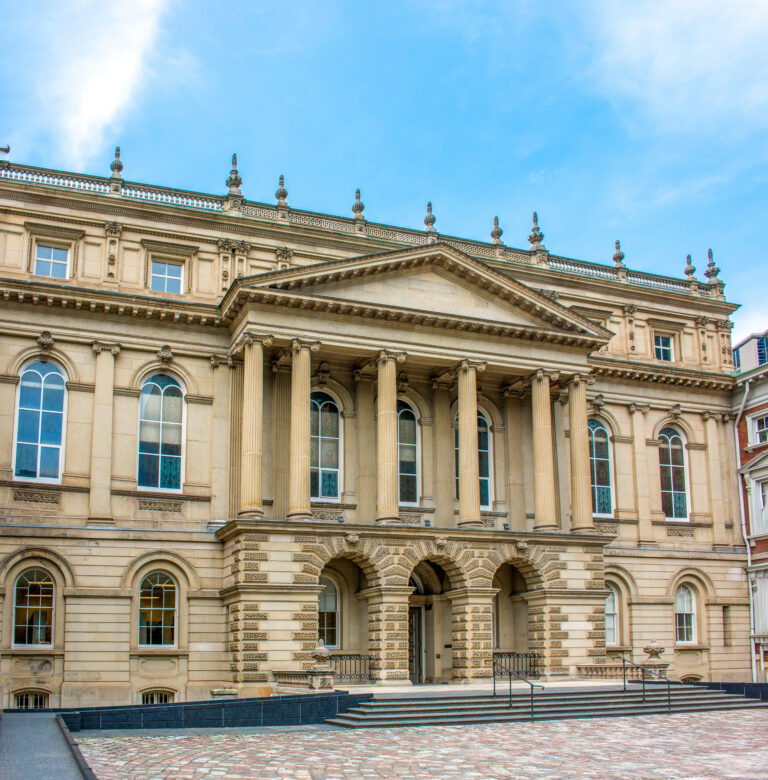Throughout history, we have seen that the most egregious human rights violations occur in the face of emergencies.
Unfortunately, it is only in hindsight that we are able to see the extent of the irreversible damage that has been caused by the government’s ability to violate our civil liberties and our right to due process. The Charter has shaped our past, but it will also shape our future. Canada’s democracy relies on precedent that demonstrates that protecting Charter rights of Canadians is of the utmost importance and is fundamental to our free and democratic society.
The Charter guarantees Canadians so many wonderful freedoms. The Charter has enshrined our right to practise our religion, our right to peacefully protest, and our right to be free from discrimination. The Charter also safeguards us from abuse of government power by protecting us from unlawful searches and from unlawfully being detained by the police.
In March 2020, the World Health Organization declared COVID-19 a pandemic. The virus has taken the lives of many around the globe. Initially, there were fears surrounding the novel virus, and certainly widely held fears can in turn provoke a government to adopt measures that can infringe on our Charter rights. For the past year and a half, the government has implemented laws that in ordinary times would be considered outrageous. We are living in a time where someone can be heavily fined simply for sitting on a park bench. My home province has been on lockdown since October, and we’ve had multiple stay-at-home orders in between where we have not been able to see our friends and family for months. Small businesses have been forced to remain closed.
Section 1 of the Charter reads “the Canadian Charter of Rights and Freedoms guarantees the rights and freedoms set out in it subject only to such reasonable limits prescribed by law as can be demonstrably justified in a free and democratic society.” Exceptional circumstances such as war, natural disasters and epidemics may justify infringements on Charter rights. The onus is on the government to justify an infringement on our constitutionally protected rights and their infringement is to be exceedingly narrow.
Resorting to the most oppressive measures and implementing measures that should be used as a last resort can hurt the democracy that Canada prides itself in.
Protecting the health and safety of Canadians is imperative. However, the decisions that are made today will impact the laws and the decisions we make in the future. As my colleague eloquently put it “the Charter does not need to comply with the orders, the orders need to comply with the Charter.” It is indispensable that every infringement is justified and it is only then that we can ensure that we maintain the values that Canada prides itself on.
We need to balance two very important interests: protecting the health of Canadians and protecting the constitutionally guaranteed rights of Canadians. Undoubtedly, this can be very difficult. The key is to ensure that when we do implement health and safety measures, that we look at any reasonable alternatives that are available and that we select the ones that are the most minimally impairing.
The media can have the ability to sensationalize things. It’s a weird juxtaposition. On one hand, we are bombarded with an overload of conflicting information. On the other hand, the government has not been transparent and has conducted its decision making behind closed doors. It can be hard to know what or who to believe, and it can be hard to make informed decisions.
Unfortunately, I’ve seen an “us versus them” mentality being created between those that are against the measures and those that are for the measures. We as productive members of society can keep ourselves informed and learn more about our rights and engage in healthy dialogue. Now is the time for us to unite, only then can we combat and get through these challenging times.
By Henna Parmar, The Lawyer’s Daily








